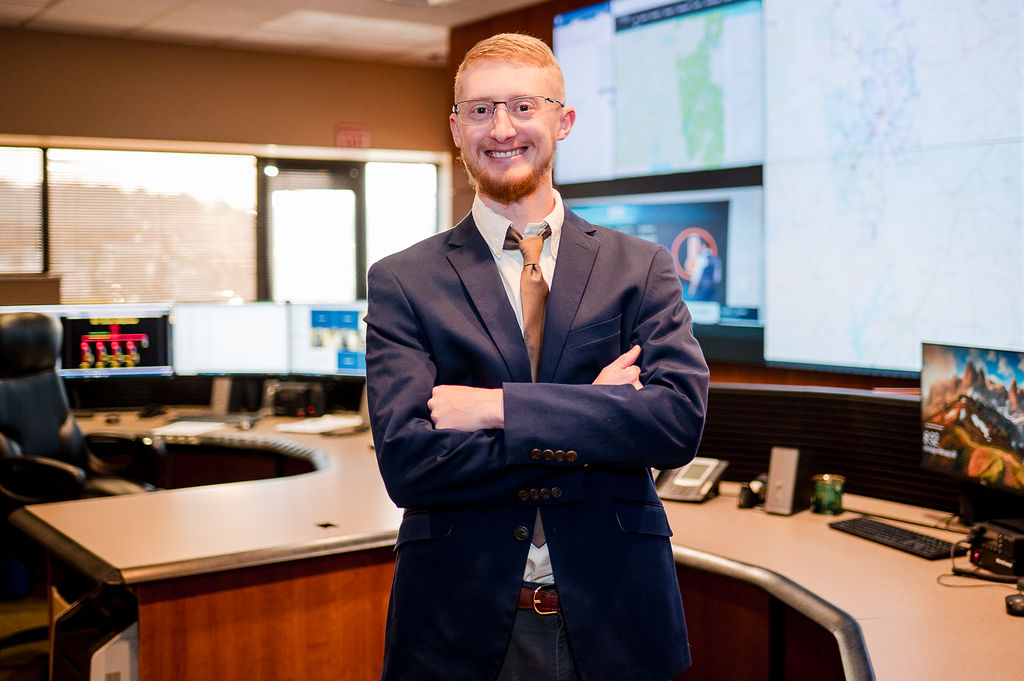
The University of West Georgia College of Education’s (COE) Early Learning Center (ELC) recently announced a partnership with Community Action for Improvement LLC (CAFI) Head Start, a move that could impact more than 300 area families.
ELC Director Dr. Chelsea Morris said the alliance, included under the UWG Pre-K umbrella, has been evolving for years.
“We originally were a professional development partner training their teachers,” Morris explained. “During the pandemic, and in our mission to rebrand the UWG Pre-K into a laboratory school, we started to dream about how one of our open classroom spaces could be a Head Start classroom, and it took us a year from there to navigate what that would look like.”
The CAFI Head Start/Early Learning partnership classroom, which opened this spring, currently has nine 3-year-old students with a capacity for growth. It is staffed by two Head Start teachers, and a slew of Head Start experts (e.g., family advocate, education manager) are part of the planning and implementation team focused on its success. The related partnership memorandum expands training and joint events with Head Start’s 11 Carrollton classrooms and their area’s programs across Heard, Haralson and Coweta counties.
For more than 50 years, Head Start has been the nation’s largest early intervention and prevention program for qualified young children and their families, largely those living below the poverty line or meeting other at-risk eligibility criteria. The Office of Head Start, within the Administration of Children and Families of the Department of Health and Human Services, awards grants to public and private agencies on a competitive basis to provide these services.
“UWG is situated in an area where Head Start eligible families live – families who have often been marginalized or under-represented at the college level and who don’t always have access to university settings,” she continued. “We know from decades of research that a university Head Start program can empower and elevate communities.”
Head Start Director Brittany Carlock has been a major advocate who dreamt with Morris for a long time about actualizing the partnership.
“We have big plans for this University-Head Start partnership,” Carlock said. “This is just the beginning. So far, it’s exceeding our expectations. ”
“These families show up every day thinking that they’ve hit the lottery by being here. ,” she concluded. “Head Start doesn’t belong in a corner somewhere. They belong on campus. These are families who benefit from this type of environment and shouldn’t be excluded from these kinds of opportunities.”
When Morris began as ELC faculty director, one of her primary missions was for the center to be seen as a hub for the region, not just the university.
“We’re really here to support the community’s needs,” she said. “The CAFI Head Start program serves a huge portion of children in this area – almost 350 families. We’ve really tried to leverage what we do here to connect with that population, drawing their parents and extended families to campus.”
This can lead to what Morris calls “a double-dosing of support” for both children and their caregivers outside the classroom.
Another benefit Morris mentioned is professional development for educators.
“Head Start committed to paying part of their teachers’ tuition to enroll in any of COE’s programs, so the teachers who are hosted here have that opportunity,” she explained. “Teachers in local programs don’t always have this opportunity if college is not part of their contract, but now we’re seeing this partnership becoming a pipeline for getting people to attend UWG.”
While such collaborations aren’t uncommon in larger cities, Morris believes it’s unique for rural communities.
“This is forging a different pathway that I really think the nation could learn from,” she said. “The goal is for it to be a feeder classroom into our UWG Pre-K program. We can start showing families in our community that when you get looped into Head Start, you’re guaranteed to get into preschool. Once you get into preschool, you’re likely to be more ready for kindergarten. It’s a snowball effect.”





